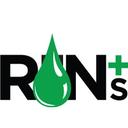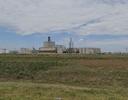IPT works to commercialize hydroesterification process
August 26, 2013
BY Ron Kotrba
International Procurement Tools LLC has signed an exclusive technology license agreement with Brazilian firm USDA and owner Ubaldino Soares to become the global distributor of hydroesterification biodiesel production units. IPT is in talks with a number of fabricators in third-world countries to build the units, and it is working with an engineering firm to do the P&IDs and other detailed design engineering work.
The process involves converting 100 percent of any low-grade feedstock to free fatty acids (FFA) first, prior to biodiesel conversion, with a hydrolysis step involving heat and pressure (subcritical water) at 270 degrees Celsius and 60-65 kgf/cm2 in a high-pressure tower, inducing a chemical reaction between the water and feedstock without a catalyst.
The fatty material is preheated and fed on the bottom of the tower while demineralized water is preheated and fed on the top. For this, independent piston pumps with a flow rate of 1:1 (fatty material: water; w:w) are used. The denser water flows to the tower bottom and the fatty material flows to the top, creating a countercurrent flow where the hydrolysis reaction happens. The FFAs are discharged from the top of the tower and dehumidified in an expansion tank by adiabatic vaporization, says Peter Brown, co-founder of IPT. The water-glycerin mix is released from the tower bottom to a flash tank and sent to the evaporator. The glycerin, according to Brown, is 99.8 percent pure since there is no methanol or catalyst present in the hydrolysis step.
The second step is esterification of the FFAs to biodiesel with methanol and no acid catalyst. The FFAs from hydrolysis are preheated and deaerated to remove air and moisture, then purified by vacuum distillation. In this process, the unsaponifiable matter and other unwanted materials are removed. The distillator is operated at medium temperature (220 C) and under high vacuum. The distilled FFAs are condensed and transferred to storage. The residue, consisting of nonvolatile contaminants, are withdrawn at the bottom of the distillator and sent to the waste tank. The esterification is performed in a stainless column at temperature of 210-220 C and pressures of 20 kgf/cm2. The distilled FFAs and methanol are preheated and pumped into the column in a countercurrent flow. The biodiesel is discharged from the bottom of the column and a mixture of water and methanol are discharged from the top, and sent to recovery.
Advertisement
Soares, who holds a patent on the technology, says, “Most existing solutions for producing biodiesel in Brazil rely on transesterification technology. The few esterification solutions require immense amounts of energy, ion acid beds that deteriorate under the production process and need constant ion replenishment. I discovered that maintaining a delicate balance in the pressure/temperature equation during production dramatically alters the energy consumption and allows for almost no additional inputs. One of my units has been producing pure biodiesel and glycerin for five years now.”
“The process is hardly new, since it has been in operation in three locations in Brazil for at least three years,” Brown says. “It has just not been commercially available until today, and we intend to bring it to market worldwide.”
Advertisement
Related Stories
Biodiesel capacity in the U.S. and Canada dipped slightly stable in 2024, with several renewable diesel producers reporting headwinds and lower margins alongside a drove of SAF projects in various stages of development.
The IEA’s Task 39 group has new research regarding the development and status of the sustainable aviation fuel industry.
The U.S. EPA on Nov. 16 released updated RIN data, reporting that nearly 2.11 billion RINs were generated under the RFS in October, up from 1.81 billion generated during the same month of last year.
Conestoga to host SAFFiRE cellulosic ethanol pilot plant
Conestoga Energy and SAFFiRE Renewables LLC announced on Nov. 16 their agreement for Conestoga to host SAFFiRE’s cellulosic ethanol pilot plant at Conestoga’s Arkalon Energy ethanol facility in Liberal, Kansas.
Officials at Calumet Specialty Products Partners L.P. discussed the company’s proposed plans to boost sustainable aviation fuel (SAF) production at its Montana Renewables biorefinery during third quarter earnings call, held Nov. 9.
Upcoming Events










